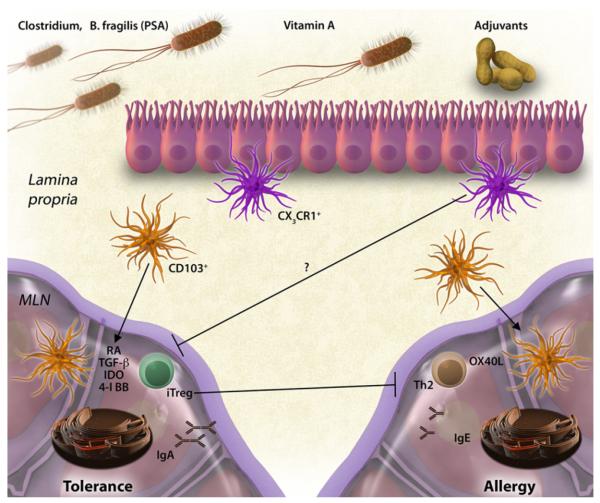FIG 1.
Tolerance and sensitization in the gastrointestinal tract. Under homeostatic conditions, antigens are acquired in the lamina propria and presented in the mesenteric lymph node (MLN) by CD103+ DCs. Through mechanisms involving retinoic acid (RA), TGF-β, indoleamine 2,3-dioxygenase (IDO), and 4-1BB, DCs induce the production of gut-homing iTreg cells and IgA-producing plasma cells. Dietary factors (vitamin A) and microbial factors (Clostridium species and Bacteroides fragilis polysaccharide A [PSA]) promote the generation of Treg cells. Under sensitizing conditions that are induced in mice with adjuvants, TH2 cells are generated through mechanisms that involve OX40 ligand (OX40L), and IgE production is induced. Treg cells actively suppress allergic sensitization to foods. These mechanisms have been described in the naive state; it remains to be determined how antigen delivered as OIT in a sensitized subject would be presented by gastrointestinal DCs and how that would modify the adaptive immune response.

